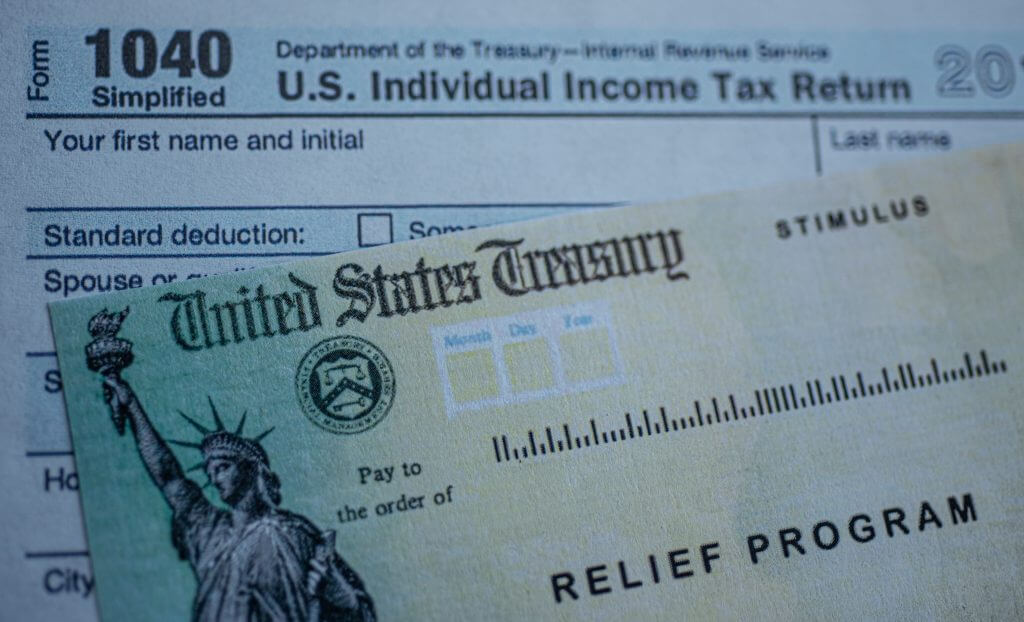By: Kimberly Zarett, CPA, MS, Principal
COVID-19 has had a tremendous impact on businesses, our social interactions, and the economy. There have been several important legislative changes enacted this year, such as the Coronavirus Aid, Relief, and Economic Security (CARES) Act, that could affect your 2020 tax filing. While you may have spent most of 2020 figuring out how to manage day-to-day life, you should now focus on some of your tax concerns. Here is a list of key changes resulting from the pandemic that may have an impact on your 2020 taxes. (Note: The information below may have changed since this article was written. Be sure to check with your accountant or tax advisor for the most up-to-date changes.)
Teleworking

As a result of numerous state orders requiring companies to close offices, many employees were, and continue to be, working remotely. There could be potential tax implications for both the employee and the employer.
Tax implications for employees: Employee wages are normally taxed based on where work is performed which, generally speaking, would be the state where the company is located. In addition, these wages are subject to tax in the state where the employee lives, which could be different from the state in which they work. During the pandemic, employees could be found working from home, a vacation house, or a temporary location where the virus was not spreading as rapidly. It is important that you keep records of where you worked to ensure proper withholding of income taxes. This is especially important if the location was different from where you worked pre-pandemic, as this may have a bearing on where you file income taxes.
Tax implications for employers: Each state has its own rules regarding the need for withholding, which could be based on the number of days spent in the state or the amount of income earned while in the state. It is important to track where employees are working and take appropriate measures to properly withhold income taxes.
Economic Impact Payment

Any economic impact payment (“stimulus payment”) that you may have received is not taxable income and will not be required to be repaid, even if you would not qualify for that amount or would qualify for a lesser amount based on your 2020 tax return. For example, if a married couple with two children received the full advanced refund of $3,400 based on 2019’s AGI (adjusted gross income), but their income increased to over $150,000 in 2020, the CARES Act does not require taxpayers to repay any advanced credit if their 2020 AGI exceeds the income limits for the credit.
Rebate recovery credit: If, on the other hand, the advanced credit is less than the actual credit, then taxpayers will be able to claim the difference (as an increased refund) on their 2020 income tax returns. For example, a married couple with two children may not have received an economic impact payment because they had high income in 2018 or 2019. However, due to the pandemic, their income will be substantially lower in 2020, which would allow them to qualify for part or all of the credit on their 2020 return. The credit will be computed in the same manner as the economic impact payment, using your 2020 tax information. NOTE: They may be able to take the credit only if: (1) They didn’t receive an economic impact payment or (2) Their economic impact payment was less than $1,200 ($2,400 if married filing jointly for 2019 or 2018), plus $500 for each qualifying child they had in 2020.
Home Office Deduction

Now that you have been working from home for the majority of 2020, you may think that you can deduct the costs of having a home office. Unfortunately, employees are not eligible to claim a home office deduction, even if their employer has required them to work from home during the COVID-19 pandemic. These costs would have been considered miscellaneous itemized deductions for unreimbursed employee business expenses. The Tax Cuts and Jobs Act of 2017 suspended the miscellaneous itemized deduction for tax years 2018 through 2025. If, however, you are self-employed, you can still take the home office deduction as you have in the past.
Refund of 529 Plan Funds

Many colleges and universities canceled all in-person classes earlier this year and students were required to move out of campus housing. As a result, many institutions refunded a portion of tuition and room and board. If funds from a 529 plan were originally used to pay for these costs, a portion of the refunded amounts could become taxable, as they are no longer being used for qualified education expenses. To avoid paying income tax and a 10 percent penalty on the earnings, the funds need to be put back into the 529 plan within 60 days from the date of the refund.
Plan providers should be contacted to determine any specific requirements for documenting the re-contribution. The deposit should be the exact amount of the refund. Account owners should keep complete records of the date and amount of the refund from the educational institution in the event the IRS requires proof that the refund should not be treated as a taxable withdrawal.
The funds could also be used to pay for tuition or other qualified expenses later in the year. Other qualified expenses that could be considered would be technology items, such as a new computer, printer, and software required for school, or books and supplies required for course(s). The payment must be in the same tax year as the original withdrawal from the plan.
Charitable Contributions
Prior to the passage of the CARES Act, only taxpayers who itemized deductions were able to reap the tax benefits of donating to their favorite charitable organizations. The CARES Act permits eligible individuals who do not itemize deductions to deduct up to $300 of qualified charitable contributions as an “above-the-line” deduction, i.e., as an adjustment in determining adjusted gross income (AGI), for the 2020 tax year. Note: If you are married and filing jointly, your deduction is still limited to $300. Also, deductions under the CARES Act must be in cash (including checks and credit card payments) and given to a 501 (c)(3) public charity.
The CARES Act also brings changes to the calculation for charitable contributions for those who itemize deductions. The Tax Cuts and Jobs Act of 2017 had capped the deduction for cash contributions to public charities at 60% of a taxpayer’s adjusted gross income (AGI). The CARES Act raised that limit to public charities (other than donor-advised funds) to 100% of AGI for 2020.
Summary
With all of the changes that 2020 has brought, it is important to reach out to your accountant or tax advisor sooner rather than later to discuss the impact COVID-19 will have on your 2020 taxes and implement strategies to minimize your tax liability.

Kim Zarett is a principal in the Tax Department of Cover & Rossiter. With over 20 years of experience in public accounting, she has a broad tax background with a strong focus on tax planning for estates, trusts, and high net worth individuals. Through the years, Kim has serviced clients primarily in the real estate, medical/dental practices, and investment partnerships segments.

